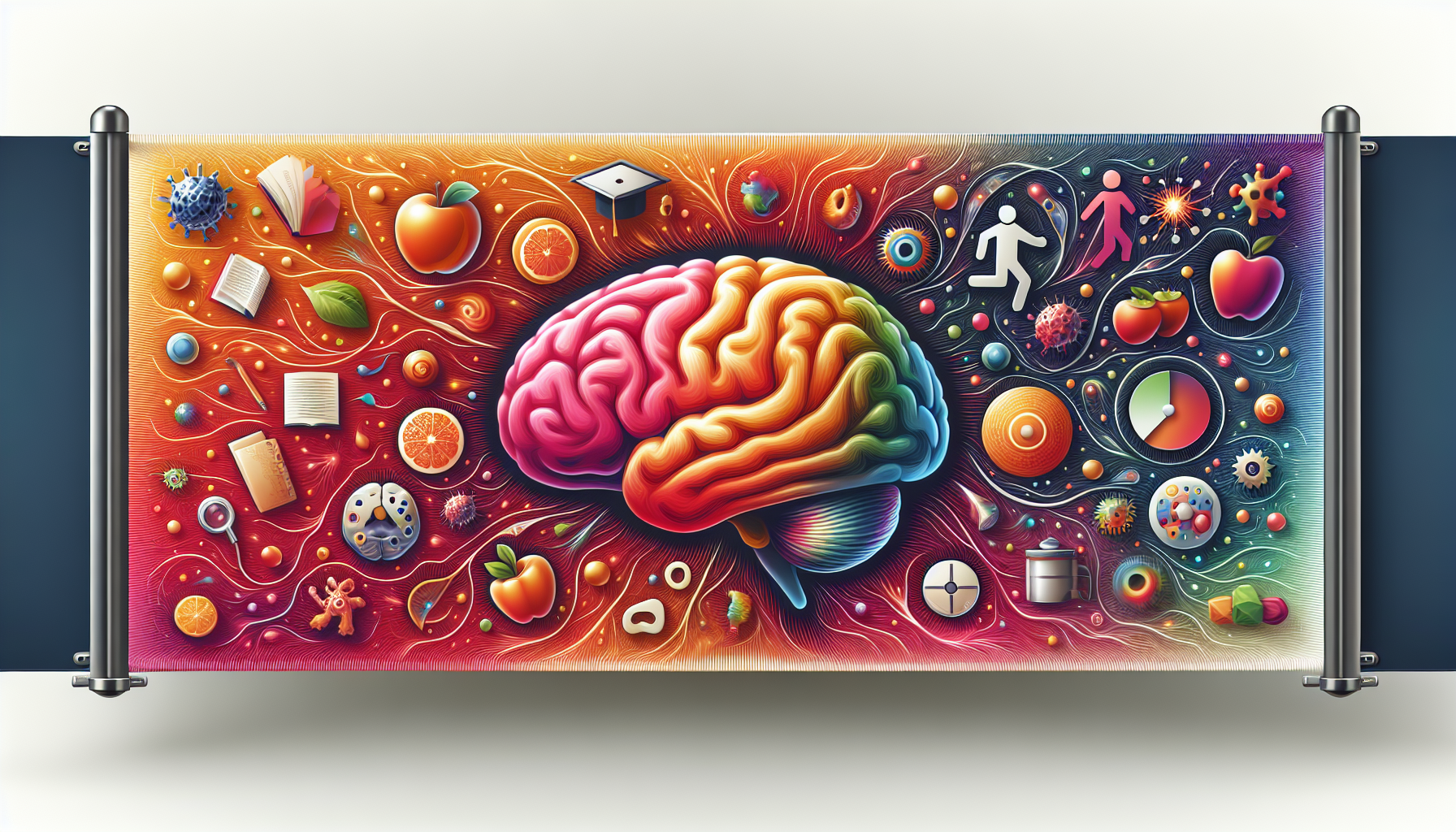On this page
Kelly McGonigal's TED talk discusses a shift in her perspective that stress, rather than being harmful, can be beneficial if viewed positively. Studies reveal that individuals who experience high stress but do not view it as harmful have lower mortality rates. The speaker also discusses the role of oxytocin, a hormone released during stress that promotes social bonding and has protective effects on the cardiovascular system. She concludes that changing our perception of stress can lead to healthier stress responses, promote resilience, and potentially extend lifespan. She also emphasizes the importance of social support and caring for others as mechanisms for stress resilience.

How does it apply to you?
Understanding this new perspective on stress can help individuals manage their stress levels more effectively, potentially improving their overall health and well-being. It could also lead to a shift in mindset for healthcare professionals and educators, who could start teaching about the benefits of stress rather than just its negative effects.
Applied Learning to Developer Enablement
Stress Perception and Software Development
In a field like software development, stress is often viewed as an inevitable part of the job. Tight deadlines, complex problems, and high expectations can all contribute to a high-stress environment. However, the key takeaway from this content is that the perception of stress can significantly affect how it impacts our health and productivity.
Developers can apply this by starting to view the stress response not as a harmful reaction, but as the body's way of preparing to meet a challenge. This change in perception can lead to a healthier stress response and potentially improved productivity and creativity.
Developer Checklist Refined
Stress Management
Software Development
Summary
Confession and Introduction to Stress
The speaker, a health psychologist, starts with a confession that she has been teaching people for the past 10 years that stress is harmful and can lead to various health issues like common cold to cardiovascular disease. However, she has now changed her perspective on stress and wishes to alter the audience's perception as well.
Study that Changed Perception of Stress
A study that tracked 30,000 adults in the United States for eight years asked participants about their level of stress and their belief about its impact on their health. The study found that those who experienced a lot of stress and believed it to be harmful had a 43 percent increased risk of dying. However, those who experienced a lot of stress but did not view it as harmful were no more likely to die. In fact, they had the lowest risk of dying among all participants.
Belief about Stress and Health
The researchers estimated that over the eight years of tracking deaths, 182,000 Americans died prematurely not from stress, but from the belief that stress is bad for them. This makes the belief that stress is harmful, the 15th largest cause of death in the United States, killing more people than skin cancer, HIV/AIDS, and homicide.
Changing the Perception of Stress
The speaker suggests that changing how we think about stress can make us healthier. When we change our mind about stress, we can change our body's response to stress. She explains this concept with a social stress test, where participants are put in stressful situations and their physical responses are monitored.
Rethinking Stress as a Positive Response
In a study conducted at Harvard University, participants were taught to rethink their stress response as helpful. For example, a pounding heart is preparing you for action and breathing faster is getting more oxygen to your brain. Participants who learned to view the stress response as helpful were less stressed out, less anxious, more confident and their physical stress response changed.
Stress Response and Cardiovascular Health
The speaker explains that the way people perceive stress can affect their cardiovascular health. In a state of stress, if individuals believe their body is preparing to meet a challenge, their blood vessels stay relaxed, even as their heart rate increases. This is a healthier cardiovascular profile compared to when stress is perceived negatively. Over time, this difference in perception could affect longevity, potentially preventing stress-induced heart attacks and contributing to a longer life span.
Changing Perception of Stress for Better Health
The speaker's goal as a health psychologist is not to eliminate stress but to help people become better at managing it. The speaker suggests that by remembering that your body's response to stress is to help you rise to the challenge, you can create a healthier stress response.
Role of Oxytocin in Stress Response
Oxytocin, often referred to as the 'cuddle hormone', is a neuro-hormone that fine-tunes social instincts. It's released during stress and motivates individuals to seek support and connect with others. It enhances empathy, increases willingness to help others, and prompts craving for physical contact with friends and family. Oxytocin is a stress hormone and is as much a part of the stress response as adrenaline.
Oxytocin and Cardiovascular Protection
Oxytocin not only acts on the brain but also on the body, protecting the cardiovascular system from the effects of stress. It's a natural anti-inflammatory and helps blood vessels stay relaxed during stress. It even helps heart cells regenerate and heal from any stress-induced damage, thus strengthening the heart. These benefits are enhanced by social contact and support.
Social Support as a Stress Resilience Mechanism
Reaching out to others under stress, either to seek support or to help someone else, releases more oxytocin, making the stress response healthier and aiding faster recovery from stress. The speaker emphasizes that the human connection is a built-in mechanism for stress resilience.
Stress, Caring for Others, and Mortality
A study tracking 1,000 adults in the United States found that major stressful life experiences increased the risk of dying by 30 percent. However, individuals who spent time caring for others showed no stress-related increase in dying. This suggests that caring for others can create resilience against the harmful effects of stress.
Transforming the Experience of Stress
The speaker concludes that the way people think and act can transform their experience of stress. Viewing the stress response as helpful creates the biology of courage. Choosing to connect with others under stress can create resilience. This scientific perspective gives a new appreciation for stress, viewing it as a potential health-enhancing part of life.
Stress as a Catalyst
Stress is portrayed not as a detriment, but as a catalyst that provides access to our hearts. This includes both our compassionate heart, which finds joy and meaning in connecting with others, and our physical heart, which works hard to provide us strength and energy.
Perception of Stress
Perceiving stress in a positive light is not merely a method to improve stress management, but it signifies a profound statement. It implies a level of self-trust in handling life's challenges, with the understanding that one is not alone in facing these challenges.
Impact of Beliefs about Stress
Beliefs about stress can significantly impact an individual's life expectancy. This raises the question of whether choosing a stressful job over a non-stressful one would matter, provided the individual believes they can handle the stress.
Chasing Meaning Over Comfort
The pursuit of meaning has been found to be healthier than avoiding discomfort. Therefore, decision-making should involve going after what brings meaning to one's life, and trusting oneself to handle the resulting stress.
FAQs
What was the speaker's initial belief about stress? The speaker, a health psychologist, initially believed that stress is harmful and can lead to various health issues like common cold to cardiovascular disease.
What findings did the study tracking 30,000 adults in the United States reveal about stress? The study found that those who experienced a lot of stress and believed it to be harmful had a 43 percent increased risk of dying. However, those who experienced a lot of stress but did not view it as harmful were no more likely to die.
What are the potential effects of changing our perception of stress? Changing how we think about stress can make us healthier. When we change our mind about stress, we can change our body's response to stress.
What effect does the perception of stress have on cardiovascular health? In a state of stress, if individuals believe their body is preparing to meet a challenge, their blood vessels stay relaxed, even as their heart rate increases. This is a healthier cardiovascular profile compared to when stress is perceived negatively.
What is the role of oxytocin in stress response? Oxytocin, often referred to as the 'cuddle hormone', is a neuro-hormone that fine-tunes social instincts. It's released during stress and motivates individuals to seek support and connect with others. It enhances empathy, increases willingness to help others, and prompts craving for physical contact with friends and family.
How does social support act as a stress resilience mechanism? Reaching out to others under stress, either to seek support or to help someone else, releases more oxytocin, making the stress response healthier and aiding faster recovery from stress.
What does the study tracking 1,000 adults in the United States suggest about caring for others and stress? The study suggests that caring for others can create resilience against the harmful effects of stress.
How can one transform their experience of stress? The way people think and act can transform their experience of stress. Viewing the stress response as helpful creates the biology of courage. Choosing to connect with others under stress can create resilience.
How is stress portrayed in a positive light? Stress is portrayed as a catalyst that provides access to our hearts, including both our compassionate heart, which finds joy and meaning in connecting with others, and our physical heart, which works hard to provide us strength and energy.
What does perceiving stress in a positive light signify? Perceiving stress in a positive light signifies a profound statement. It implies a level of self-trust in handling life's challenges, with the understanding that one is not alone in facing these challenges.
How can beliefs about stress impact an individual's life? Beliefs about stress can significantly impact an individual's life expectancy. This raises the question of whether choosing a stressful job over a non-stressful one would matter, provided the individual believes they can handle the stress.
What is healthier, pursuing meaning or avoiding discomfort? The pursuit of meaning has been found to be healthier than avoiding discomfort. Therefore, decision-making should involve going after what brings meaning to one's life, and trusting oneself to handle the resulting stress.







